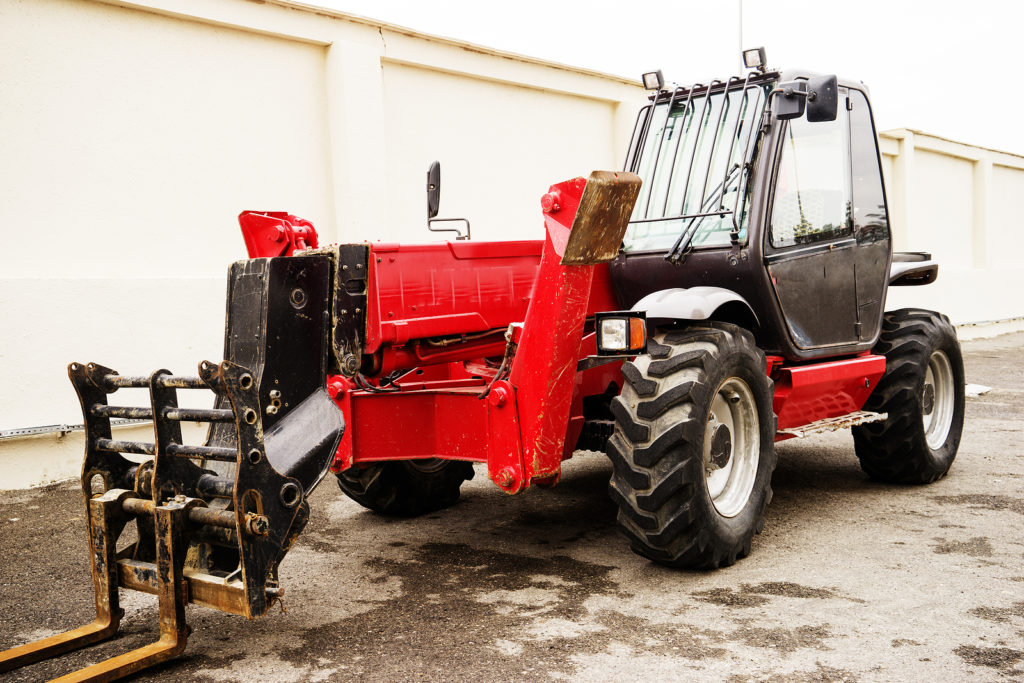Rough Terrain Forklifts Safety Training Is Important – Here’s Why

Rough Terrain Forklifts Safety Training
A long time ago and most likely yesterday a worker in a lumber yard, warehouse, or big box retailer somewhere in the U.S. said, “Boss, I know how to drive a forklift. All forklifts are the same, aren’t they?”. This grandiose statement has been the bane of many workers, supervisors, job superintendents, and managers for as long as there have been forklifts. All forklifts are not the same.
Does an employee that has received forklift training from an earlier warehouse job have the required training to operate a forklift on rough terrain at a construction job site? The answer to that question hinges on the employee’s forklift training type they received. All forklifts do not operate similarly, and several are outfitted with different types of components. Due to this fact forklifts are listed in multiple classes.
There is training for class 5 forklifts. This type of forklift is generally used in General Industry. This type of forklift training only permits the driver to operate a Class 5 forklift. Separate training for Class 7 forklifts, known as a Rough Terrain lift truck, is required to operate this type of machine.
The Unique Distinctions of Rough Terrain Forklifts
Rough Terrain forklifts are manufactured to operate in work locations with little or no flat solid surfaces, including asphalt, concrete, brick, or other permanent road surfaces. This type of forklift is made specifically to operate on rough terrain. Even though they were made to operate on uneven surfaces, ongoing careful operation is critical when the machine is operating include driving the unit, lifting loads, and putting loads down. This type of caution is necessary to keep it from tipping over. Tip-overs are the top cause of forklift accident loss of life. When it comes to forklift operation, lifting a load must be done when the machine is on a surface that permits the machine to be perfectly stable. Being knowledgeable about how to raise any type of load properly and being 100% aware of the ground status the machine is operating on is vital for performing safe machine operations.
Rough Terrain Forklifts Safety Rules and Regulations
Rough Terrain forklifts do not have a set speed limit. OSHA does note in its rules that forklifts must be driven and operated at a proper safe speed all the time. There are multiple things and issues regarding figuring out a “Safe Speed.” Operating surface environment including driving surface and topography, forklift load steadiness, workers located nearby, and additional vehicle and machines in the vicinity are a handful of aspects to account for by the operator when figuring out a reasonable speed to operate the machine. Driving a Rough Terrain forklift safely, slow, and steady is never wrong.
Safety is job one when it comes to operating a rough terrain forklift. Seatbelts are mandatory equipment and must be used each time the forklift is moved. There is a pattern that Rough Terrain forklift drivers fall into where they get lazy about putting the machine’s seatbelt on repeatedly when they get on and off the unit. Most accidents occur when operating the unit after only a short distance. Construction sites are never static. They are always changing. One day there may be a set of footings in one area and the next day there may be a concrete slab in the same spot. The seatbelt on a Rough Terrain forklift must be always worn when operating the machine. Additionally, a forklift operator should always wear a hard hat, safety glasses and hearing protection.
Rough Terrain forklifts are normally gas-powered machines, and they need to be gassed up to keep operating. Forklift operators need to be cognizant of the risks that come with all types of fuel including, gas, diesel, or propane. With fuel in mind, all forklift operators need to confirm the unit they are driving is setup with a charged operational inspected fire extinguisher in the event a fire happens when gassing up the machine.
